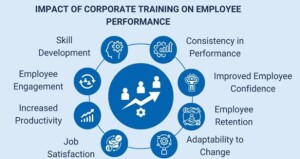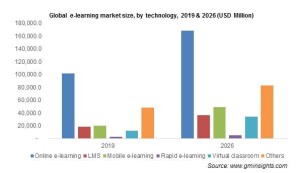In the ever-evolving landscape of the software industry, skill development isn’t just a luxury; it’s a strategic necessity. Let’s delve into some compelling statistics that underscore the importance of continuous learning and upskilling in this dynamic field.
Rapid Technological Advancement:
According to the World Economic Forum, over 85 million jobs may be displaced by technological advancement by 2025. Also, it’s estimated that the global digital transformation market will reach $1.8 trillion, driving unprecedented disruption across industries (Source: IDC).
With emerging technologies like AI, blockchain, and IoT reshaping industries, software professionals and manufacturing industry employees need to continually hone their skills to keep pace with the rapid rate of innovation.
Demand for Tech Talent:
In a survey by Indeed, 83% of hiring managers reported difficulty in finding qualified candidates for tech positions, highlighting the growing demand for skilled software professionals.
The U.S. Bureau of Labor Statistics projects that employment in computer and information technology occupations will grow by 11% from 2019 to 2029, much faster than the average for all occupations.
The Talent Crunch:
In 2020, the U.S. faced a shortage of 1.4 million computer science professionals, exacerbating the challenges faced by companies in recruiting top tech talent (Source: Code.org).
Globally, the shortage of skilled software developers is projected to exceed 1 million by 2030, signaling a pressing need for robust skill development initiatives (Source: Korn Ferry).
Benefits of Upskilling:
LinkedIn’s 2021 Workplace Learning Report revealed that 74% of employees would stay longer at a company if they invested in their career development.
Companies that prioritize employee training and upskilling enjoy a 24% higher profit margin than those that don’t, according to a study by the Association for Talent Development.
Udemy’s 2021 Workplace Learning Trends Report found that 40% of employees believe that learning and development opportunities are the most important factor when deciding where to work.
Corporate Training / Retention / Engagement
A study by McKinsey found that companies with a highly skilled workforce are 50% more likely to outperform their peers in profitability.
Organizations that invest in employee training and development enjoy a 24% higher profit margin than those that don’t, highlighting the tangible benefits of upskilling (Source: Association for Talent Development).
Proliferation of MOOCs:
Massive Open Online Courses (MOOCs) have gained popularity as a cost-effective and scalable model for delivering educational content to a large audience. Platforms like Coursera, edX, and Udacity partner with top universities and industry experts to offer courses, certificates, and even degree programs in software development and related fields.
142 million registered in Coursera and over 210000 courses are available in Udemy.
Embracing Lifelong Learning:
Software professionals who engage in continuous learning through online courses, certifications, and hands-on projects are better equipped to adapt to industry changes and seize new opportunities.
In essence, skill development isn’t just an investment in oneself; it’s an investment in the future for all the industries. By fostering a culture of continuous learning and innovation, we can unlock boundless opportunities for growth, propel technological advancement, and shape a brighter tomorrow.
Let’s embark on this journey of lifelong learning together, armed with curiosity, determination, and an unwavering commitment to excellence!






